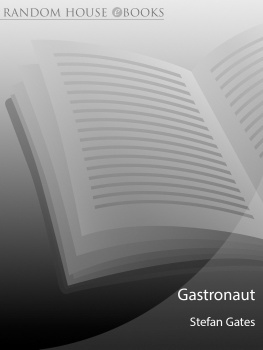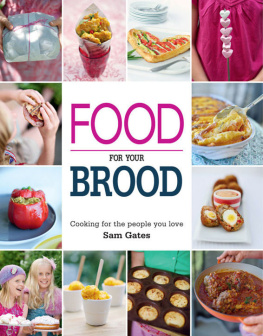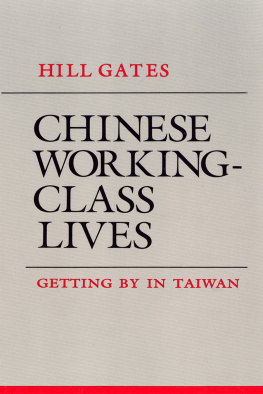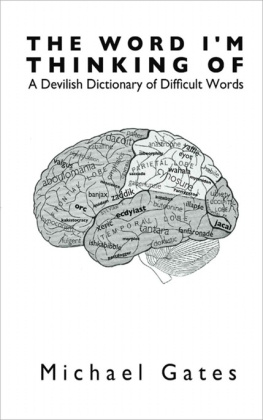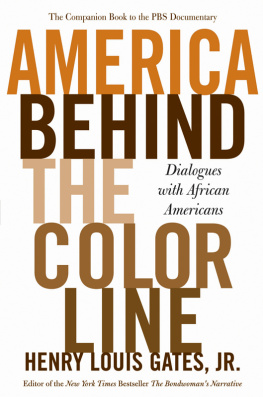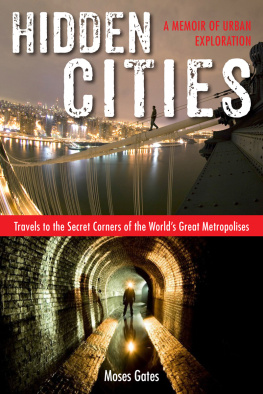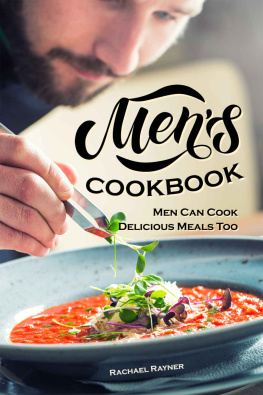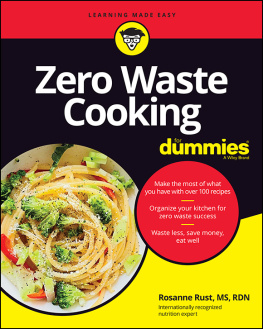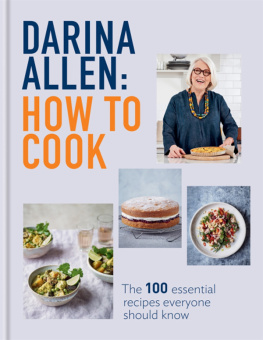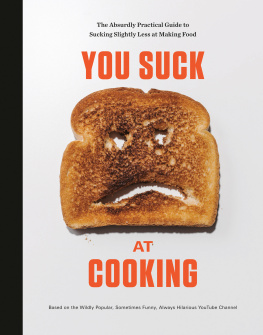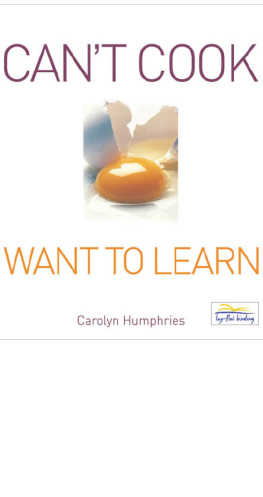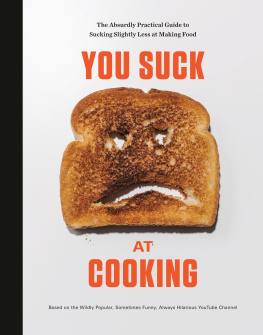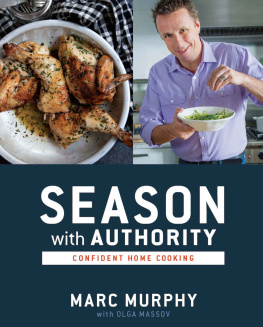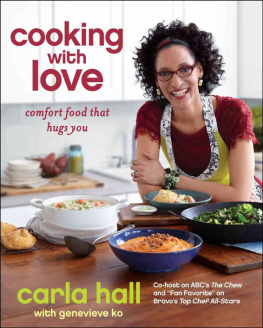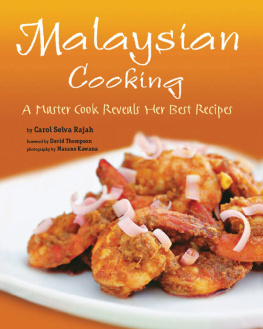Contents

About the Book
Gastronaut is an irreverent journey through the crazy, twisted, mixed-up world of food. Its full of extraordinary, extravagant and bizarre culinary experiences, arcane information and practical recipes for spectacular food.
Each of us will spend 16 per cent of our waking lives cooking and eating. That time is far too precious to waste on chores, so why not turn cooking into an adventure? This book of strange and wonderful gastronomic quests will help you do just that.
If youve ever wondered how to stage a Bacchanalian orgy in the comfort of your own home, how to make a bum sandwich, how to cook a whole pig underground, smoke salmon in a biscuit-tin, cook with gold, woodlice, reindeer, guinea pig, aftershave or breastmilk, or whether its true that you cant teach a grandmother to suck eggs the answers are here.
This isnt a work of fiction or hyperbole. Gastronaut is thoroughly researched, tested and illustrated throughout. It also includes a survey that lifts the lid, Kinsey-style, on the real eating habits of the nation. If cannibalism were legal, which famous person would most people like to eat? What foods make us fart? Do people genuinely like their pasta al dente? Can men lactate? Gastronaut is perfect for people who are fascinated by food, who love the wilder side of cooking, who yearn for adventure or who, frankly, just like showing off.
About the Author
Stefan Gates is a writer and broadcaster. In 2004, as a presenter and writer of the BBC2 series Full on Food, Stefan introduced the nation to the wilder side of gastronomy. Hes worked as a TV directorm scriptwriter and comedy producer, but his strangest job was appearing naked on the cover of Led Zeppelins Houses of the Holy at the age of four. He is married to the top food photographer Georgia Glynn Smith, who shot the pictures for Gastronaut in between working with the likes of Nigel Slater and Gordon Ramsay.
What are little boys made of?
What are little boys made of?
Frogs and snails,
And puppy-dogs tails,
Thats what little boys are made of.
What are little girls made of?
What are little girls made of?
Sugar and spice,
And all things nice,
Thats what little girls are made of.
To my girls, Georgia, Daisy and Poppy
This ebook is copyright material and must not be copied, reproduced, transferred, distributed, leased, licensed or publicly performed or used in any way except as specifically permitted in writing by the publishers, as allowed under the terms and conditions under which it was purchased or as strictly permitted by applicable copyright law. Any unauthorized distribution or use of this text may be a direct infringement of the authors and publishers rights and those responsible may be liable in law accordingly.
Version 1.0
Epub ISBN 9781448141951
www.randomhouse.co.uk
First published 2005
Copyright Stefan Gates 2005
The moral right of the author hasbeen asserted.
Photographs Georgia Glynn Smith 2005
All rights reserved. No part of this book may be reproduced in any form or by any means without prior written permission from the publisher, except by a reviewer who may quote brief passages in a review.
ISBN 9780563522720
Published by BBC Books,
BBC Worldwide Ltd, Woodlands,
80 Wood Lane, London W12 0TT
Commissioning editor: Nicky Ross
Project editor: Christopher Tinker
Copy-editors: Judith Scott and Patricia Burgess
Designer: Isobel Gillan
For more information about this and other BBC books,
please visit our website at www.bbcshop.com or
telephone 08700 777001
HELLO
YOU HOLD IN your hands a gastronautical questbook, a practical guide for the adventurous cook and a personal journey through the crazy, twisted, mixed-up world of food. If you see it as a manual for culinary show-offs, I can live with that. I just want to encourage you to play with your food.
The first half of this book is for your bedside: a mixture of essays and tales of culinary adventure. If that inspires you, then I hope the second half will travel to your kitchen to join you on some wild gastronomic projects. Barring a handful of recipes that Ive included because I thought theyd tickle you or because I just couldnt stop myself, everything here is real and practical. That said, I dont expect you to cook from this book every day or even every week, but rather when you have the time and inclination to have some fun, to make something spectacular and to explore the culinary hinterland.
But why bother playing with food? Well, bear this in mind: you will eat 20 tonnes of food in your lifetime, and youll spend 2946.62 days eating, shopping, cooking, queuing or hunting for it. Thats 16% of your entire waking life. You could spend that time making comfort food, eating burgers or fussing over canaps, but Christ alive, what a waste of a life. Were a race of dreamers, alchemists, poets and explorers, and my guess is that you, dear reader, are one of those and youre not willing to see life slip through your fingers. Much better to maximize your excitement-to-mastication ratio by every now and then spending an inordinate amount of time slaving away over a crazy recipe in search of a moment of epiphany.
Whenever Ive been asked what my moment of culinary epiphany was, Ive lied through my teeth trying to make up something clever. The truth of the matter is that I fell in love with cooking before I fell in love with food, and for two very simple reasons. The first was named Jane and the second, Denise. These were two highly fanciable girls in my home economics class when we were 13 years old, and whenever the teacher wasnt looking, wed play a game whose rules were completely incomprehensible, but which invariably ended up with us fondling each others bottoms with floury hands. It quickly dawned on me that great things could be achieved through cooking.
Food is so much more than fuel its a catalyst for emotion, an historical journey, a rite, a celebration, a three-times-daily act of giving and receiving love and a fine opportunity for exhibitionism. For myself, I wouldnt claim that I dive into the culinary unknown every day, but most weekends I like to destroy my kitchen (with my two-year-old daughter as my wingman) in a flight of gastronomic fancy, and I hope that once in a while you will, too.
Experimenting with food is more than just fun its essential. In the 1580s the potato was an obscure poisonous tuber, but some gastronaut persevered until it became one of the worlds most successful crops, sustaining life for billions. But, by then relying on this miracle discovery, we failed a nation by creating a monoculinary culture. Irelands tragic potato famine was mostly due to over-dependence on a single strain of that self-same crop.
We are omnivores with a diverse diet and, in our primitive state, insatiable culinary curiosity, and this is one of the reasons why, in evolutionary terms, our species has been so successful. We are highly adaptable in times of want, unlike the koala bear, for instance, which lives exclusively on eucalyptus. If the eucalyptus season is a bad one, whole populations of koala bears are wiped out. We have the ability to move on to other crops (annoyingly, we cant actually digest eucalyptus the koala has had to develop a special stomach to cope with such a poisonous herb). We must avoid the temptation to stick with what we know, and continue to experiment, to take risks in order to survive.
Next page
